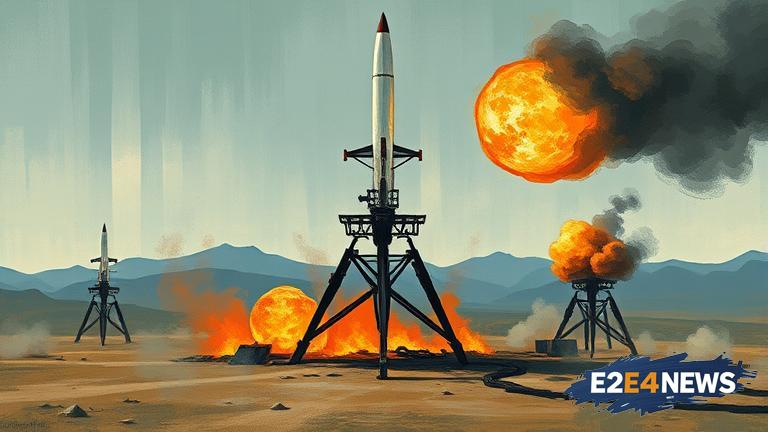The topic of nuclear weapons has been a contentious issue for decades, with many arguing that the mere existence of these weapons is a threat to humanity. However, a closer examination of the issue reveals that the real danger lies not in the weapons themselves, but in who controls them. The proliferation of nuclear weapons has been a major concern, with many countries seeking to acquire these weapons as a means of deterrence. But the question remains, are nuclear weapons the real danger, or is it the individuals and governments that control them? The answer to this question is complex and multifaceted. On one hand, nuclear weapons have the potential to cause catastrophic damage and loss of life, making them a significant threat to global security. On the other hand, the control of these weapons is what ultimately determines their use and the consequences that follow. A responsible and stable government with a strong track record of diplomacy and international cooperation is less likely to use nuclear weapons, whereas a rogue state or terrorist organization with access to these weapons poses a significant threat to global security. The history of nuclear weapons has been marked by a series of close calls and near-misses, with the Cuban Missile Crisis being a prime example. In this instance, the world came close to nuclear war, but the crisis was ultimately averted due to the diplomatic efforts of the United States and the Soviet Union. This example highlights the importance of responsible leadership and diplomacy in preventing the use of nuclear weapons. In recent years, the threat of nuclear proliferation has increased, with countries such as North Korea and Iran seeking to acquire these weapons. The international community has responded to this threat with a range of measures, including sanctions and diplomatic efforts. However, the effectiveness of these measures is debated, and the threat of nuclear proliferation remains a significant concern. The control of nuclear weapons is also a major issue, with many arguing that the spread of these weapons increases the risk of nuclear conflict. The Treaty on the Non-Proliferation of Nuclear Weapons (NPT) has been instrumental in preventing the spread of nuclear weapons, but its effectiveness has been limited by the actions of rogue states and terrorist organizations. In conclusion, the danger posed by nuclear weapons is complex and multifaceted, and it is the control of these weapons that ultimately determines their use and the consequences that follow. The international community must continue to work towards preventing the spread of nuclear weapons and promoting responsible leadership and diplomacy. This can be achieved through a range of measures, including diplomatic efforts, sanctions, and international cooperation. Ultimately, the goal of a nuclear-free world is a noble one, but it is a goal that will require significant effort and cooperation from the international community. The threat of nuclear weapons is a reminder of the importance of responsible leadership and diplomacy, and the need for continued international cooperation to prevent the use of these weapons. The world has come close to nuclear war on several occasions, and it is only through the efforts of responsible leaders and diplomats that we have avoided catastrophe. The control of nuclear weapons is a significant issue, and one that requires careful consideration and cooperation from the international community. The use of nuclear weapons would have catastrophic consequences, and it is the responsibility of governments and international organizations to prevent their use. The history of nuclear weapons is a complex and fascinating one, and it is a reminder of the importance of responsible leadership and diplomacy. The threat of nuclear proliferation is a significant concern, and one that requires continued international cooperation to prevent. The world is a safer place when responsible governments and international organizations work together to prevent the spread of nuclear weapons and promote diplomacy and cooperation.
Tue. Oct 21st, 2025
